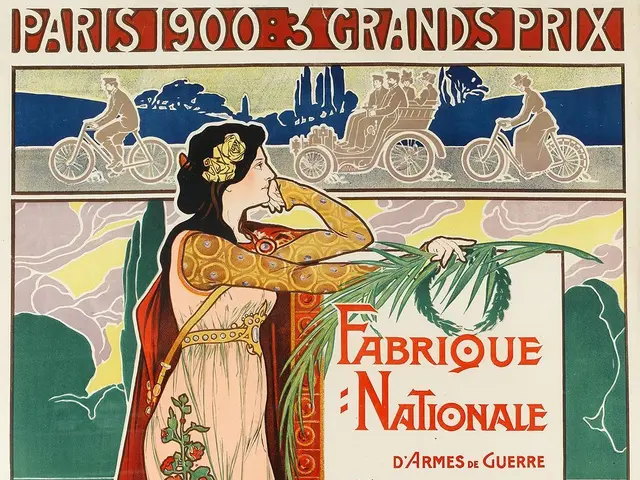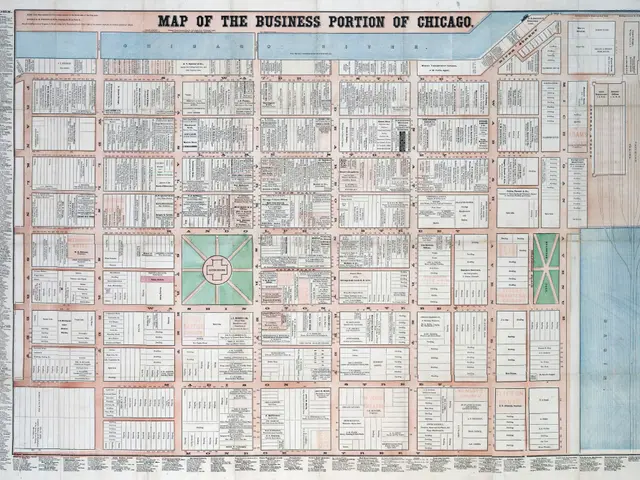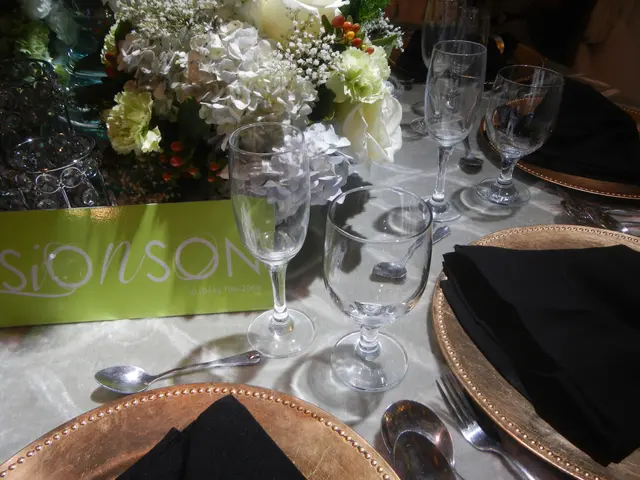High-level nuclear discussions to take place between Iran and the United States in upcoming round
Fresh Take:
Muscat, Oman - The U.S. and Iran are gearing up for another round of nuclear talks in Oman this weekend, armed with optimism and caution following progress in earlier meetings. Iran's Foreign Minister, Abbas Araghchi, leading the Iranian delegation, touched down in Muscat on Friday, with U.S. Middle East envoy, Steve Witkoff, expected to head the American side.
Araghchi expressed a measured optimism about the process, stating that as long as the U.S. demands are focused on eliminating Iran's nuclear weapons ambitions, the goal is achievable. However, he warned that illogical or impractical demands would lead to issues.
U.S. President, Donald Trump, in a recent interview with Time magazine, echoed his dual sentiments, hinting at the threat of military action if negotiations falter, but also expressing his hope for a peaceful agreement. He prefers a deal over "bombs dropped."
The technical discussions will kick off the talks, followed by high-level negotiations. Michael Anton, the State Department’s head of policy planning, will spearhead Washington’s expert-level delegation, while Iranian deputy foreign ministers Kazem Gharibabadi and Majid Takht-Ravanchi will lead Tehran’s delegation.
Omani Foreign Minister Badr Albusaidi will mediate the discussions, as he has in the previous two Saturdays' meetings in Muscat and Rome. Iran's goal, according to Iranian foreign ministry spokesman Esmaeil Baqaei, is to secure its right to peaceful nuclear energy while demonstrating the peacefulness of its program. The swift removal of sanctions is also a priority.
The recent engagements are the highest-level encounter between the long-time adversaries since Trump pulled out of the landmark 2015 nuclear accord during his initial term. Since returning to office in January, Trump has reinstated the “maximum pressure” policy of sanctions against Tehran.
On Tuesday, the U.S. announced new sanctions targeting Iran's oil network, a move Iran described as hostile before the upcoming talks. Western nations, including the U.S., have long suspected Iran of striving to develop nuclear weapons, a claim Tehran has continually denied.
In other developments, Iran maintains its nuclear program is strictly for peaceful purposes. On Wednesday, UN nuclear watchdog chief Rafael Grossi asked Iran to clarify the purpose of tunnels built near its Natanz nuclear site. The Institute for Science and International Security released satellite imagery indicating the construction of a new, deeply buried tunnel alongside an older one and a new security perimeter. While Grossi did not rule out the possibility that the tunnels could be storing undeclared material, he did not speculate.
In a separate development, U.S. Secretary of State Marco Rubio reiterated the U.S.'s firm stance against Iran's uranium enrichment in an interview on the Honestly podcast. Iran currently enriches uranium up to 60%, above the 2015 deal's limit but below the 90% threshold for weapons-grade material. Araghchi has declared Iran's right to enrich uranium as non-negotiable.
Iran has been seeking to reopen dialogue with Britain, France, and Germany—also signatories to the 2015 nuclear deal—holding several rounds of nuclear talks ahead of the U.S. meetings. Araghchi recently revealed that relations with the trio were currently strained but showed willingness to visit Paris, Berlin, and London for talks on nuclear issues and any other topics of mutual interest and concern.
Recently, Rubio urged European countries to decide whether to trigger the “snapback” mechanism under the 2015 agreement, which would automatically reimpose UN sanctions on Iran. The option to use the mechanism expires in October, and Iran has warned it could withdraw from the Nuclear Non-Proliferation Treaty if the snapback is triggered.
- The upcoming nuclear talks between the U.S. and Iran in Muscat, Oman, will see both nations' diplomats negotiating with a mix of optimism and caution.
- Iran's Foreign Minister Abbas Araghchi, who landed in Muscat on Friday, has expressed cautious optimism about the process, provided the U.S. focuses on eliminating Iran's nuclear weapons ambitions.
- President Donald Trump, in a recent interview, has expressed his dual sentiments, hinting at the threat of military action if negotiations falter, yet expressing hope for a peaceful agreement.
- The discussions will encompass technical and high-level negotiations, with Michael Anton leading Washington's expert-level delegation, and Iranian deputy foreign ministers Kazem Gharibabadi and Majid Takht-Ravanchi at the helm of Tehran’s delegation.
- Omani Foreign Minister Badr Albusaidi will mediate the discussions, having facilitated the previous two rounds of meetings in Muscat and Rome.
- The goal of Iran, according to the Iranian foreign ministry spokesman Esmaeil Baqaei, is to secure its right to peaceful nuclear energy while demonstrating the peacefulness of its program and securing the swift removal of sanctions.
- In other developments, the UN nuclear watchdog chief Rafael Grossi has asked Iran to clarify the purpose of tunnels built near its Natanz nuclear site, following the release of satellite imagery suggesting new tunnel construction and a security perimeter.
- Iran's uranium enrichment, currently at 60%, above the 2015 deal's limit but below the 90% threshold for weapons-grade material, is a contentious topic in the ongoing discussions, with Araghchi declaring Iran's right to enrich uranium as non-negotiable.








